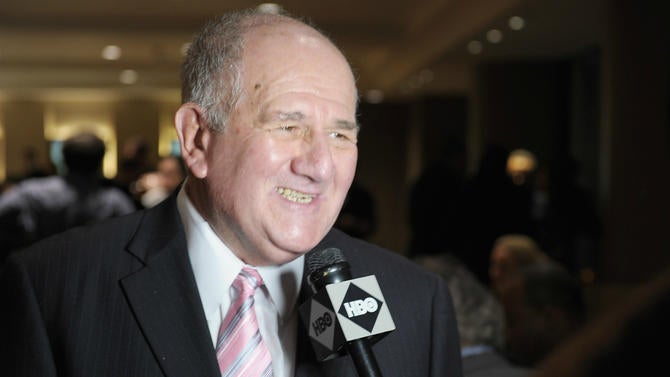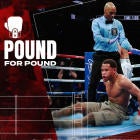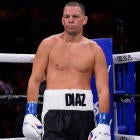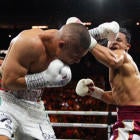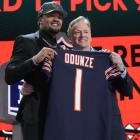He's made a professional career out of scoring fights.
But thanks to a life spent in and around New York City, Harold Lederman is a fan of many sports.
So it's no surprise that he greeted news of his International Boxing Hall of Fame induction with a baseball reference rather than a boxing one.
"I was more shocked than Pete Rose," Lederman said.
That disbelief came last December, but the 76-year-old Bronx native finally took one giant step for scorecard-handlers last weekend in Canastota, New York, where he joined Lupe Pintor, Hilario Zapata, Marc Ratner, Jerry Izenberg and Bob Sheridan as the International Boxing Hall of Fame's class of 2016.
The induction class also included Hector Camacho, who died in 2012.
"I was thrilled to death when they called me up," he said. "I knew my name was on the ballot this year for the first time and I'm the first boxing judge to be inducted, so it's a super big thrill for me."
Given his prolonged path to enshrinement, his glee is warranted.
Though he's recognized these days as a fixture of premium cable fight nights, Lederman actually began judging bouts in 1967 and was a veteran of nearly 20 years before he dipped his toe in TV waters.
He called then-HBO executive Ross Greenburg in early 1986 after watching a broadcast whose commentary veered wildly from the final result, and floated the idea of adding a pair of licensed scoring eyes to the announce team to interpret rules and decode judging mysteries.
Greenburg took his counsel and invited him to help with coverage of a match between Pinklon Thomas and Trevor Berbick a few weeks later, though Lederman admits now that fight-week perception of Thomas as an easy winner had convinced him the stint would be a short one.
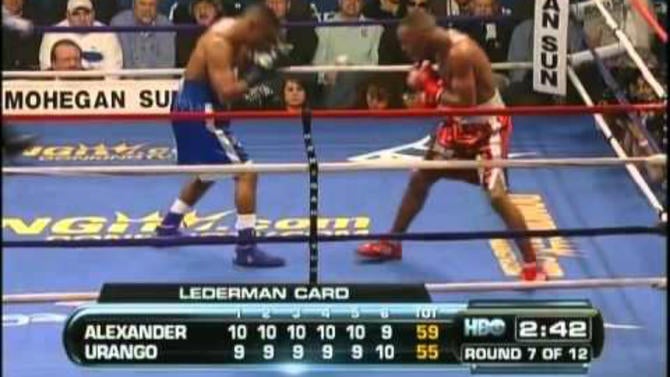
"I said to my wife, 'Pinklon Thomas is a 7-to-1 favorite. What's gonna happen is I'm gonna go to Las Vegas, Thomas is going to belt this guy out in the first round and my career on HBO is gonna be abruptly over,'" he said. "Little did I know that Trevor Berbick hired the very famous trainer, Eddie Futch, to train him, and that's the only fight that Eddie Futch ever trained Trevor Berbick.
"So anyway, Trevor Berbick wound up winning the unanimous decision, HBO liked what I had to say and they've been asking me back ever since. Every time I used to run into Eddie Futch, I would say, 'Hey Eddie, you're responsible for my career on HBO. If it wasn't for you training Berbick, I would've never been on HBO.' He used to get a big kick out of that."
Thirty years later, so does Lederman.
Especially when he considers the impact on the way the sport is covered these days.
"No station was using an unofficial judge to keep score for the public," he said.
"And now every single station that carries boxing is using an unofficial to keep score. I really started something. After I was on HBO for five years, 10 years, all of a sudden the stations started to say, 'You know what, Lederman is a pretty good idea, let's get ourselves a judge.' So now, I really feel like I'm the innovator in unofficial judging."
And just as Muhammad Ali's death prompted myriad look-backs at "The Greatest's" career, it also cajoled Lederman to reminisce about the pre-HBO fight he said people still ask about - 40 years later.
He joined fellow judge Barney Smith and referee Arthur Mercante as the official scorers for Ali's third fight with Ken Norton at Yankee Stadium in September 1976, which ended in a unanimous decision for the champion that was instantly greeted with outrage, disbelief and skepticism.
The judges labeled Ali an 8-7 winner and the referee had him up, 8-6-1.
The Associated Press said on fight night that it would "probably go down as one of boxing's all-time disagreements," while the Milwaukee Sentinel claimed Ali "was plain lucky" to get the nod.
Lederman, though, stands by his perspective - as opposed to those now relying on YouTube.
"Very close. Very controversial," he said. "A lot of people who were sitting back from the ring thought that Norton won the fight. I thought that Ali outboxed him in eight of the rounds and that's the way I scored it. It's a lot different. At ringside, you get a three-dimensional view. It's much, much easier to judge a fight when you're there, when you're ringside, when you're right on the apron. Ideally, you should have a seat that's a little raised so your eyesight is above the first strand of rope.
"It's much more difficult at home because of the fact you only get that one-dimensional view. All you can see is what the director is putting on the screen."
